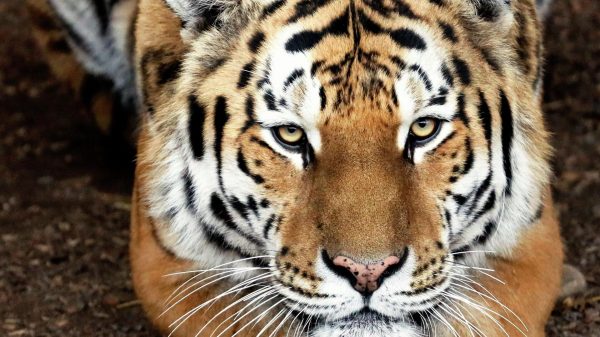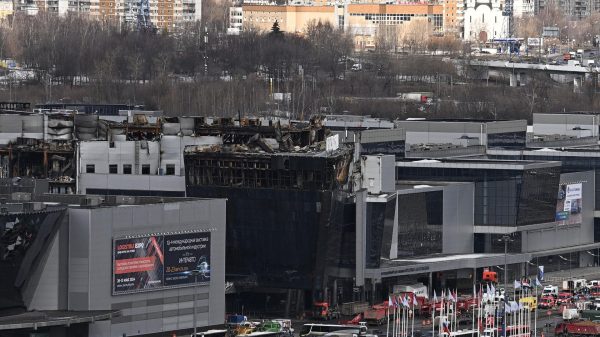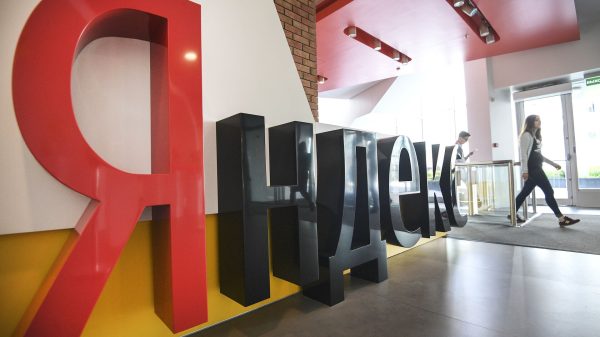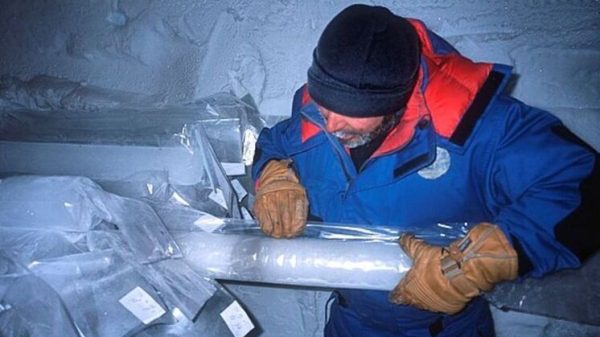 Ship Disaster: The 'Demonic' Results of the Collins' Trying to Create a Cute Bunny Story
Ship Disaster: The 'Demonic' Results of the Collins' Trying to Create a Cute Bunny Story
Will artificial intelligence spell doom for the Hollywood workforce? American actors and writers are now on strike in part over fear that this could happen as studios begin experimenting with this new wave of digital tools that can create scripts and images in seconds. However, if any union representative is reading this, I think I've come up with an unbeatable negotiating tactic: just show the other party an AI-generated movie. Because if what they see is like what I did this week, the studios will succumb to the strikers in seconds.
This was supposed to be a fun summer getaway. With two kids at home and in need of entertainment, I sat down at my laptop and asked some AI programs to make a short animation for them. The idea was to keep my own input to a minimum — just three or four guiding suggestions — and let this bold new technology do its magic.
Unfortunately, the magic in question turned out to be less of a Disney variety than a demonic summoning of the kind that Aleister Crowley may have once practiced in a candle-lit dungeon. To this day, nights later, as the moon hangs low in the ominous August sky, I swear I can see the flicker of its light as those monstrous AI-induced forms dance against it, muttering, screeching, and commanding me to follow them with beckoning claws into the cave. darkest horrors. On the positive side, however, my boys had a hearty laugh throughout.
In its current form, AI has been around since the mid-2000s, when the development of deep learning changed the way computers think. Lessons from brain science were used to create artificial neural networks: vast computer models that could identify objects in images and translate text from one language to another, mimicking the recognition process that occurs in the human mind.
It then surged forward again about a year ago, when the process could essentially be reversed. Now, when describing something to a computer, it can create text or a picture that matches the description, made up of a vast dataset of online text and images. This was the moment when AI suddenly seemed dangerous: the jobs of illustrators and copywriters were suddenly at risk, and essay markers warned of a coming wave of plagiarism that would be almost impossible to detect. The AI-generated words and images were not exactly good, but most importantly, they were almost good enough.
 Rise of the Machines: Robbie Collin is writing the screenplay for Ball Bungle. Credit & Copyright: Jamie Collin
Rise of the Machines: Robbie Collin is writing the screenplay for Ball Bungle. Credit & Copyright: Jamie Collin
This was my first reaction when I entered the following clue into the ChatGPT AI-based online language model: “Write a short animated film about two rabbits trying to get a ball out of a tree. They have to try several different methods, and they all have to go wrong. At the end, the bird should take the ball, and the rabbits will get angry. The script should run for about three minutes.
He stopped for a few seconds and then began to write. Or at least some text appeared on the screen that at first glance looked terribly plausible. It had the name Ball Bungle, basic stage directions, and even a reason why the ball got stuck in a tree (the bunnies tossed it there by mistake). And after uploading the script to Murf, an artificial intelligence app that converts text to speech, three vocal performances returned within moments. True, they lacked something in drama, and the laughter sounded a little creepy, but otherwise my directorial debut fell on the fly.
About a year ago, the emerging potential of AI was spotted by Chris Boyle, a film director who has directed commercials for clients such as Nike, Sainsbury's and Nationwide, as well as in-game films for the Call of Duty video game series.
“I just started fooling around with it,” he says from the offices of Private Island, the boutique London-based production company he runs with producer Helen Power. He liked «the feeling of dizziness: not necessarily what it could do at that moment, but how quickly it improved, and things that initially seemed like years became possible within a few months.»
Today, Private Island is at the forefront of AI-driven experimental films. Boyle's disturbing five-minute short «Infinite Variety in Infinite Combinations» tricks technology into revealing its own preconceptions, while his ethereal phony beer ad «Synthetic Summer» — think of Bud Light via Bosch — became a viral sensation earlier this year. However, he explains, «you have to understand its strengths and weaknesses.» What he's good at (and I wish I knew about it sooner) is «stock images and Lovecraft oddities» while his Achilles' heel is «anything that even comes close to compelling dramatic performance.»

On that note, back to Ball Bungle. After recording the voices, I needed to generate some images, which meant I turned to DALL-E, an artificial intelligence-based image generator cutely named after surrealist Salvador Dali and WALL-E, Pixar's friendly garbage robot. He was instrumental in the creation of a number of early AI short films, including Frost, a sci-fi adventure produced by Detroit-based advertising firm Waymark, which was constructed entirely from footage produced by DALL-E, which was subsequently animated by D -ID, a photo-to-video converting app slightly over my budget. (Even the most advanced AI programs nowadays can create digital video in just a few seconds from scratch.)
Now the nightmare has begun. Passing the ChatGPT scene descriptions to DALL-E resulted in some images that can only be described as repulsive: rabbits with eyeballs protruding from their noses, or with extra limbs and ears, or covered in some kind of taupe digital mange. It was far from ideal for children's entertainment, so I fiddled with the clues, adding phrases such as «Pixar-style» or «cute cartoon …», but there was no cuteness or pixarism.
After about three hours of fruitless fiddling, I cut my losses, matched the best shots I got with the vocal performance in iMovie, and the Ball Bungle was ready. Or rather «Bail», which was the closest thing DALL-E had to releasing a movie title page that says «Ball Bungle» from the clue «Movie title that says «Ball Bungle»». The first three results were Balige Ball, Buge Liu and Nbulbe, so when Bale came I gave up.
The premiere was terrible. The script, which had originally looked passable, now sounded clankingly nonsensical, with images ranging from just plain ugly to hideous. However, my 8- and 10-year-olds were in stitches and subsequently said they loved it.
«Don't you think it's a little quirky?» I asked them in bewilderment.
«Yes!» They responded enthusiastically.
The secret to using AI in movies, according to Boyle, is to «treat it like another material to work with, like plasticine,» rather than a replacement artist. “A lot of the fears around AI have to do with being treated like some kind of creative partner, which it isn’t. The demands of the Hollywood unions are completely justified.”
The next day, I went back to ChatGPT and asked the AI why the movie they made was so bad.
“I apologize. if it didn't live up to your expectations, it replied. «If you have any specific feedback or suggestions, I'm here to listen and learn.»
«But if I help you by giving feedback, doesn't that mean I'm collaborating with machines against the best interests of my fellow men and help in the downfall of cinema as I know it?» I replied.
“Not necessarily,” he said.
























































Свежие комментарии